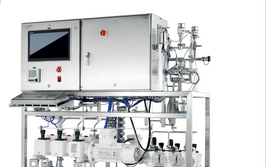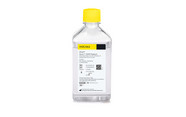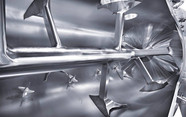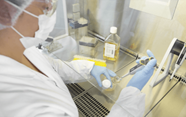Antibody Attack
DNA vaccine helps turn patients’ own cells into antibody-producing factories

Vaccination against dengue virus is challenging to say the least, but researchers from the University of Pennsylvania believe that synthetic DNA could hold the answer. Specifically, they believe that DNA-encoded monoclonal antibodies could be used as an instant vaccine platform (1). Dengue fever is a mosquito-borne viral infection, but current vaccines do not provide protection against all four strains of the disease. In fact, vaccination against one strain could actually make patients more vulnerable to future infections because of the disease’s complex relationship with antibodies.
“Traditional dengue virus vaccines cause the immune system to make antibodies, but dengue virions can use these antibodies at a later stage to more easily enter and replicate in certain immune cells. This “enhancement” of infection (known as antibody-dependent enhancement, or ADE) can occur even in the presence of neutralizing antibodies,” says Seleeke Flingai, one of the project researchers.
Given the intricate role that antibodies play in the dengue disease puzzle, Flingai says it was a good target for their work. Their approach has two components: an optimized, synthetically developed DNA plasmid encoding the mAb of choice (DMAb), and an in vivo electroporation (EP) device that delivers the DNA to cells. Unlike traditional antibodies, DMAbs are specially designed not to provoke ADE. Upon intramuscular injection of the DMAb and in vivo EP delivery, the muscle cells engulf the DNA and begin to produce and secrete the desired mAbs into circulation. Essentially, the patient’s own muscle cells become antibody factories.
“We believed that DMAb delivery would result in serum-detectable mAbs within some period of time, but we were really surprised by the rapidity of protective immunity; antibodies appeared in the blood of the test animals within a day or two after DMAb delivery,” says Flingai.
The next goal will be to increase the antibody levels and improve the consistency of DMAb delivery. Flingai also wants to develop additional anti-dengue DMAbs that target all four strains of the disease, and begin testing the approach in larger animals.
- S.Flingai et al., “Protection against dengue disease by synthetic nucleic acid antibody prophylaxis/immunotherapy,” Scientific Reports, doi:10.1038/srep12616 (2015).

Making great scientific magazines isn’t just about delivering knowledge and high quality content; it’s also about packaging these in the right words to ensure that someone is truly inspired by a topic. My passion is ensuring that our authors’ expertise is presented as a seamless and enjoyable reading experience, whether in print, in digital or on social media. I’ve spent fourteen years writing and editing features for scientific and manufacturing publications, and in making this content engaging and accessible without sacrificing its scientific integrity. There is nothing better than a magazine with great content that feels great to read.


















